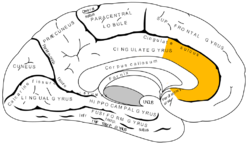 Our brains are hard-wired to seek reward. If we make a good decision, our dopamine levels go up. This tells our brain, good decision, do it again next time. It literally changes the anatomy of the brain to repeat the action. This strengthens certain connections and decreases others so that this desirable increase in dopamine will happen again. This is how an addiction is formed
Our brains are hard-wired to seek reward. If we make a good decision, our dopamine levels go up. This tells our brain, good decision, do it again next time. It literally changes the anatomy of the brain to repeat the action. This strengthens certain connections and decreases others so that this desirable increase in dopamine will happen again. This is how an addiction is formed
Dopamine plays an important role in our ability to handle stress, be motivated, and create an overall sense of well-being. The use of drugs or alcohol raises the level of dopamine, resulting in an artificial “feel-good” sensation. When the brain’s levels of dopamine are in natural flux, we experience survival instincts: the need to eat, reproduce, or be a part of a group. In fact, our motivation to do anything: to feel good, to experience a sense of well-being, is controlled by the healthy fluctuation of dopamine levels. As a way of regulating itself, the body will also deactivate dopamine receptors, so that we don’t experience the need to eat or feel good all of the time. In doing this, the brain makes sure that the reward system that has enabled us to survive and evolve over millions of years is not disrupted.
However, chronic use of drugs or alcohol causes the brain to become accustomed to external stimulation of neurotransmitters and receptors. This interrupts the natural ebb and flow of the body’s chemical production. Chronic use over-stimulates the receptors until they are damaged, unable to support themselves with their own chemicals, and the number of neurotransmitters is reduced. As a result, an individual will experience depression, anxiety, inability to handle stress, withdrawal symptoms, intense cravings, and deeper addiction.
It isn’t just drug and alcohol addiction and dopamine that are related. Dopamine is thought to play a role in other conditions such as obesity, gambling, Parkinson’s disease and ADHD. The National Institute on Drug Abuse is researching different types of vaccines that will may eventually be able to prevent a drug, such as cocaine, from entering the brain and overloading the dopamine system and setting into motion a vicious cycle. Currently, protocols like Neurotransmitter Restoration address the re-balancing and repair of the brain and its reward cycle.


